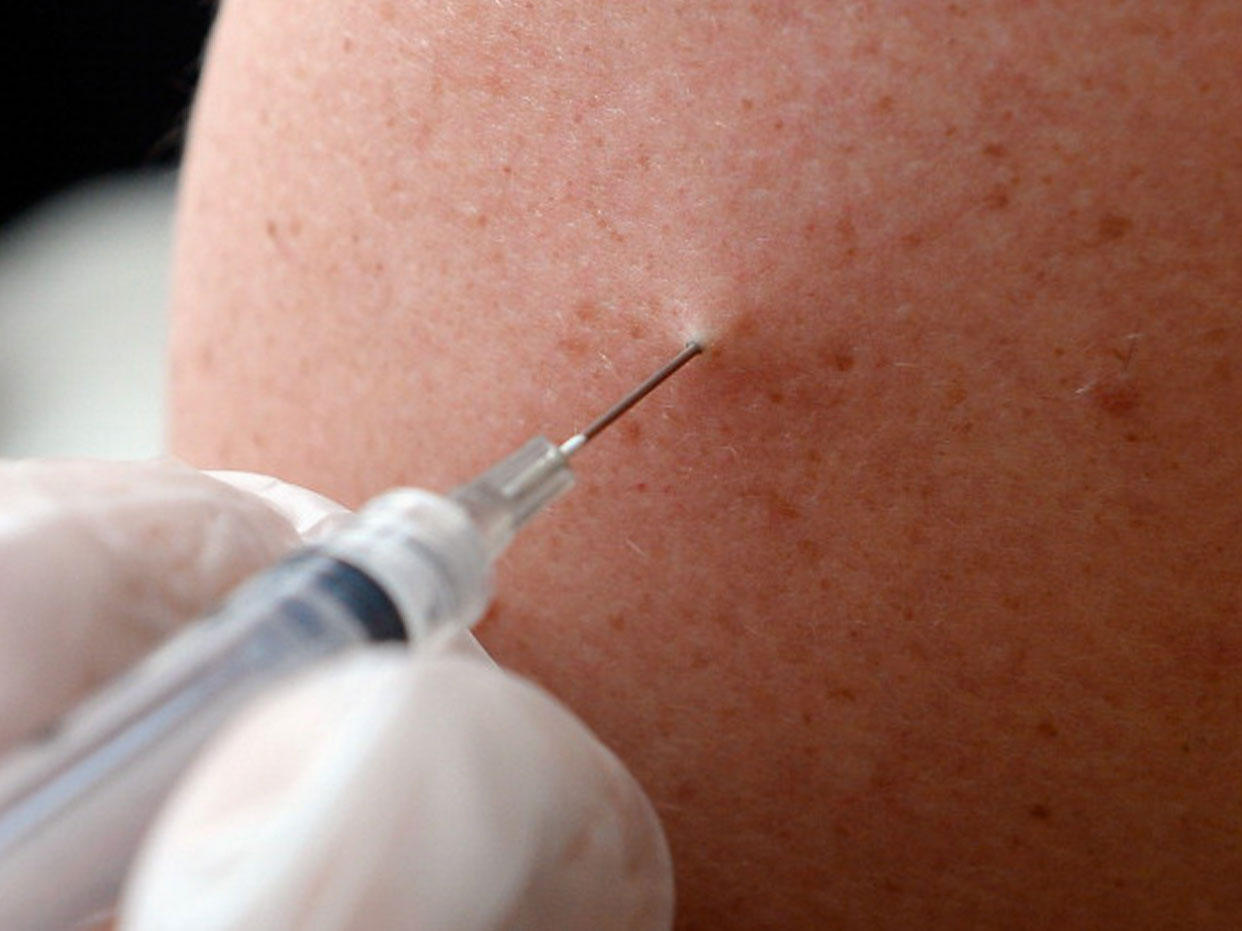Why rich countries are hoarding smallpox vaccines
Danish pharma company has doubled its revenue projections as orders flood in

A free daily email with the biggest news stories of the day – and the best features from TheWeek.com
You are now subscribed
Your newsletter sign-up was successful
Wealthier countries are responding to the monkeypox outbreak by ordering more smallpox vaccines than they require, risking a reprise of the vaccine inequality seen during the Covid-19 pandemic.
A total of 366 confirmed monkeypox cases have been identified in the UK, and a further 275 in Spain, 209 in Portugal and 48 in the US. Rich countries are responding by “ordering more vaccines than they’ll arguably need”, said Quartz.
The vaccine attracting such interest is actually for smallpox but is estimated to provide 85% protection against monkeypox.
The Week
Escape your echo chamber. Get the facts behind the news, plus analysis from multiple perspectives.

Sign up for The Week's Free Newsletters
From our morning news briefing to a weekly Good News Newsletter, get the best of The Week delivered directly to your inbox.
From our morning news briefing to a weekly Good News Newsletter, get the best of The Week delivered directly to your inbox.
The US has ordered half a million doses, on top of the 1.5 million it already had stockpiled. The vaccine’s Danish maker, Bavarian Nordic, has received so many orders that it has more than doubled its revenue projections.
Last month, Bavarian Nordic said an undisclosed country had ordered sufficient doses to cover its potentially at-risk population in the short and medium term.
The company said it was also “currently in dialogue” with several other governments concerning supply of the vaccine to mitigate the current outbreak and to “explore opportunities for longer term collaboration to build stockpiles for future preparedness”.
Despite the presence of monkeypox in Africa for decades, there has been little investment into preventing and treating cases. Therefore, said Quartz, the “best option” is to use vaccines and therapeutics developed in case of a smallpox terror attack.
A free daily email with the biggest news stories of the day – and the best features from TheWeek.com
Last month, Dr Luigi Ferrucci, scientific director of the National Institute on Aging, told The New York Times that older adults are partially protected by distant smallpox vaccinations.
“The bottom line is that even those that were vaccinated many decades before maintain a very, very high level of antibodies and the ability to neutralise the virus,” he said. “Even if they were vaccinated 50 years ago, that protection should still be there.”
News of smallpox jabs being hoarded by wealthier countries has reignited concern about vaccine inequality. During the Covid pandemic, the World Health Organization said that the “global failure to share vaccines equitably” was “taking its toll on some of the world’s poorest and most vulnerable people” and leading to new variants of concern that meant that the risks of infection “increased in all countries for people who are not yet protected by vaccination”.
The monkeypox virus was discovered in 1958 when outbreaks of a pox-like disease occurred in monkeys kept for research, says the UK government website’s infectious diseases portal.
Chas Newkey-Burden has been part of The Week Digital team for more than a decade and a journalist for 25 years, starting out on the irreverent football weekly 90 Minutes, before moving to lifestyle magazines Loaded and Attitude. He was a columnist for The Big Issue and landed a world exclusive with David Beckham that became the weekly magazine’s bestselling issue. He now writes regularly for The Guardian, The Telegraph, The Independent, Metro, FourFourTwo and the i new site. He is also the author of a number of non-fiction books.
-
 Properties of the week: pretty thatched cottages
Properties of the week: pretty thatched cottagesThe Week Recommends Featuring homes in West Sussex, Dorset and Suffolk
-
 The week’s best photos
The week’s best photosIn Pictures An explosive meal, a carnival of joy, and more
-
 The ‘ravenous’ demand for Cornish minerals
The ‘ravenous’ demand for Cornish mineralsUnder the Radar Growing need for critical minerals to power tech has intensified ‘appetite’ for lithium, which could be a ‘huge boon’ for local economy
-
 A Nipah virus outbreak in India has brought back Covid-era surveillance
A Nipah virus outbreak in India has brought back Covid-era surveillanceUnder the radar The disease can spread through animals and humans
-
 Trump HHS slashes advised child vaccinations
Trump HHS slashes advised child vaccinationsSpeed Read In a widely condemned move, the CDC will now recommend that children get vaccinated against 11 communicable diseases, not 17
-
 A fentanyl vaccine may be on the horizon
A fentanyl vaccine may be on the horizonUnder the radar Taking a serious jab at the opioid epidemic
-
 Health: Will Kennedy dismantle U.S. immunization policy?
Health: Will Kennedy dismantle U.S. immunization policy?Feature ‘America’s vaccine playbook is being rewritten by people who don’t believe in them’
-
 How dangerous is the ‘K’ strain super-flu?
How dangerous is the ‘K’ strain super-flu?The Explainer Surge in cases of new variant H3N2 flu in UK and around the world
-
 Vaccine critic quietly named CDC’s No. 2 official
Vaccine critic quietly named CDC’s No. 2 officialSpeed Read Dr. Ralph Abraham joins another prominent vaccine critic, HHS Secretary Robert F. Kennedy Jr.
-
 This flu season could be worse than usual
This flu season could be worse than usualIn the spotlight A new subvariant is infecting several countries
-
 Covid-19 mRNA vaccines could help fight cancer
Covid-19 mRNA vaccines could help fight cancerUnder the radar They boost the immune system